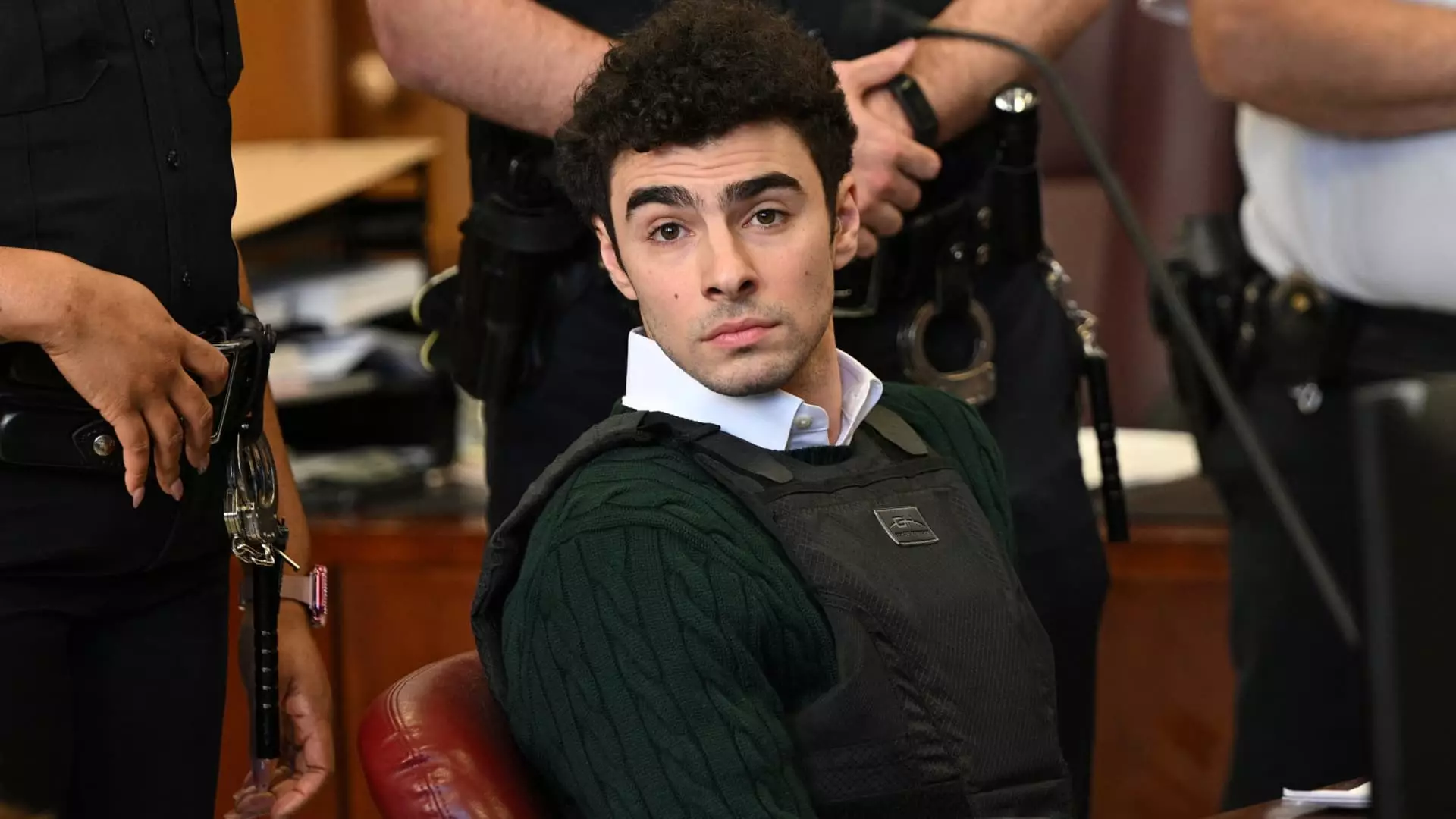The tragic reality of violence ignited by ideological fervor has never been more apparent than in the chilling case of Luigi Mangione, who has pleaded not guilty in the murder of UnitedHealthcare CEO Brian Thompson. This case transcends mere criminality; it delves deep into the troubling confluence of social frustration and violence, raising essential questions about our societal narratives that both glorify and demonize our economic structures. The implications of this murder reverberate throughout our discourse on health care, capitalism, and the moral justification of violence as a tool for change.
The Broader Context: Ideology and Violence
The prosecution’s argument hinges on the idea that Thompson’s murder was not simply a crime of passion or random act of violence, but rather a calculated, premeditated assault aimed at a sector that many view with disdain. Mangione’s alleged intent to speak through violence reflects a disturbing trend where individuals feel justified in taking extreme measures against institutions they deem corrupt or harmful. When the narrative surrounding health care and corporate power shifts from discussion to deadly violence, we must confront the uncomfortable truth that ideological extremism can lead to dire consequences.
Mangione’s background as a University of Pennsylvania graduate complicates the traditional profile of a perpetrator. This detail serves as a stark reminder that disenchantment with the status quo can emerge from any social strata. It illustrates that this is not merely an issue confined to the disenfranchised; rather, it is a pervasive concern that traverses socioeconomic barriers. The murder of Thompson, described as an innocent man and father, is a grim illustration of how ideological convictions can corrupt judgment and lead to catastrophic actions.
The Call for Justice: Death Penalty and Due Process
As the case unfolds in a New York federal court, the Justice Department has taken an unequivocal stance by seeking the death penalty for Mangione should he be convicted. U.S. Attorney General Pam Bondi’s public statements have ignited a firestorm, leading to legal arguments around the appropriateness of such commentary and its effect on the rights of the accused. This raises an essential facet of our legal system: the balance between the pursuit of justice for victims’ families and the fundamental rights of the accused.
Critics argue that cherry-picking an individual for extreme punishment does little to address the root causes of violence in our society. The rhetoric surrounding Mangione’s actions embodies a complex interplay of empathy for victims and concern for due process. As society grapples with its desire for retribution, it becomes imperative to advocate for a balanced approach that examines not only the act of violence but also the systemic failures contributing to such ideologies.
The Role of Public Perception and Media Frenzy
The sensationalization of Mangione’s case serves as a case study in how media narratives can shape public perception, often leading to mob mentalities rather than informed discourse. The courtroom drama surrounding this case has been compounded by the intense scrutiny from various media outlets, many of whom rush to frame the narrative in the most sensational terms. This frenzy shines a spotlight on the responsibilities of the media to report with sensitivity and accuracy, bearing in mind the fragile line between public safety and a fair trial.
Public commentary from figures like Attorney General Bondi only exacerbates the complexity of this situation. It feeds a narrative hungry for blood, further polarizing the discourse surrounding health care and corporate power. A more thoughtful approach emphasizes the need for dialogue over division, understanding over vengeance, and systemic reform over penal measures.
Confronting the Underlying Issues
As our society grapples with the troubling case of Luigi Mangione, it becomes increasingly clear that we must contend with the fear, frustration, and alienation many feel toward powerful institutions. The murder of Brian Thompson is a wake-up call—a galvanizing moment urging us to reconsider how we approach our discussions about those who control the corridors of wealth and power. Rather than letting anger spiral into violence, we must foster environments where disagreement does not result in desolation but leads to constructive discourse.
This case is not merely about retribution; it calls for reflection on the ideologies we embrace and how we handle our discontent. Without addressing the underlying issues, we risk fueling further tragedies—not only for the victims of violence but for the societal fabric as a whole.


Leave a Reply